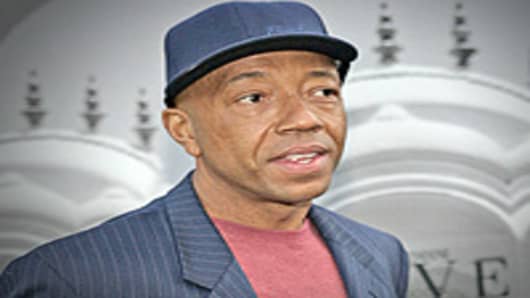At its core, hip-hop music is about rebellion, rhythm and … financial literacy?
Russell Simmons, hip-hop mogul and founder of the Def Jam music label, has teamed up with discount retailer Wal-Mart Stores to teach minority communities about financial success through hip-hop culture.
"Hip-hop has always exuded the American Dream," Simmons said. "It's about what people in struggle think about."
The "Get Your Money Right" financial summit will be put on by Simmons' non-profit Hip-Hop Summit Action Network, which is aimed at using hip-hop to create positive social change.
Participants in the organization's two events — the first of which is Saturday — will learn about credit scores, budgeting and realistic spending. The information will be presented at a more basic level than the mainstream media provides and will be directed at people without any background on the subject, Simmons said.
Several of Wal-Mart's financial services experts and local leaders will speak at the three-hour conference, and celebrities like Simmons will share the good and bad financial decisions they've made throughout their careers.
"It's given by people who are inspiring to the audience. It's given in a language, in a style that's engaging and it's easy to follow. It's simple, it's laid out and they're speaking directly to the people who love them," Simmons said.
This is the fifth year the organization has held the event, which typically draws a crowd of about 2,000. But co-founder Dr. Ben Chavis said he expects a larger showing because of the staggering unemployment rate, which has particularly affected urban communities.
According to the US Department of Labor, the national unemployment rate reached 9.7 percent in August. It stood even higher in minority communities, touching 15.1 percent for African Americans and 13 percent for Hispanics and Latinos.
"Financial literacy is something that everybody needs, but we do know that the need for financial education is something that is needed very much so in communities of color and disadvantaged communities," said Tony Waller, a senior director of corporate affairs for Wal-Mart.
Because of an influx of e-mails from young people disappointed in the lack of financial education they were receiving in school, this year's conference will focus more directly on people between the ages of 18 and 35, Chavis said. Eighteen is also a critical age to start education because it's when many people take control of their own finances — and make their first mistakes.
"It's a pretty good sign, I think, to see young people want to participate in the economy," he said. "Everybody can't be a rapper, but everybody can improve their situation."
The summit will make its first stop in Greensboro, N.C., on Saturday, followed by Houston, Texas, on Oct. 17. Free tickets to the events are available in Wal-Mart stores and on the HSAN Web site.
After the conference, attendees will receive a workbook that will teach them about the housing and financial markets, the difference between appreciating and depreciating assets, and budgeting strategies, Chavis said. The booklet will also be available online.
"I think that we will see a different kind of generation emerge from this [economy]," Waller said. "People will start thinking about money and the handling of money in a different kind of way.



